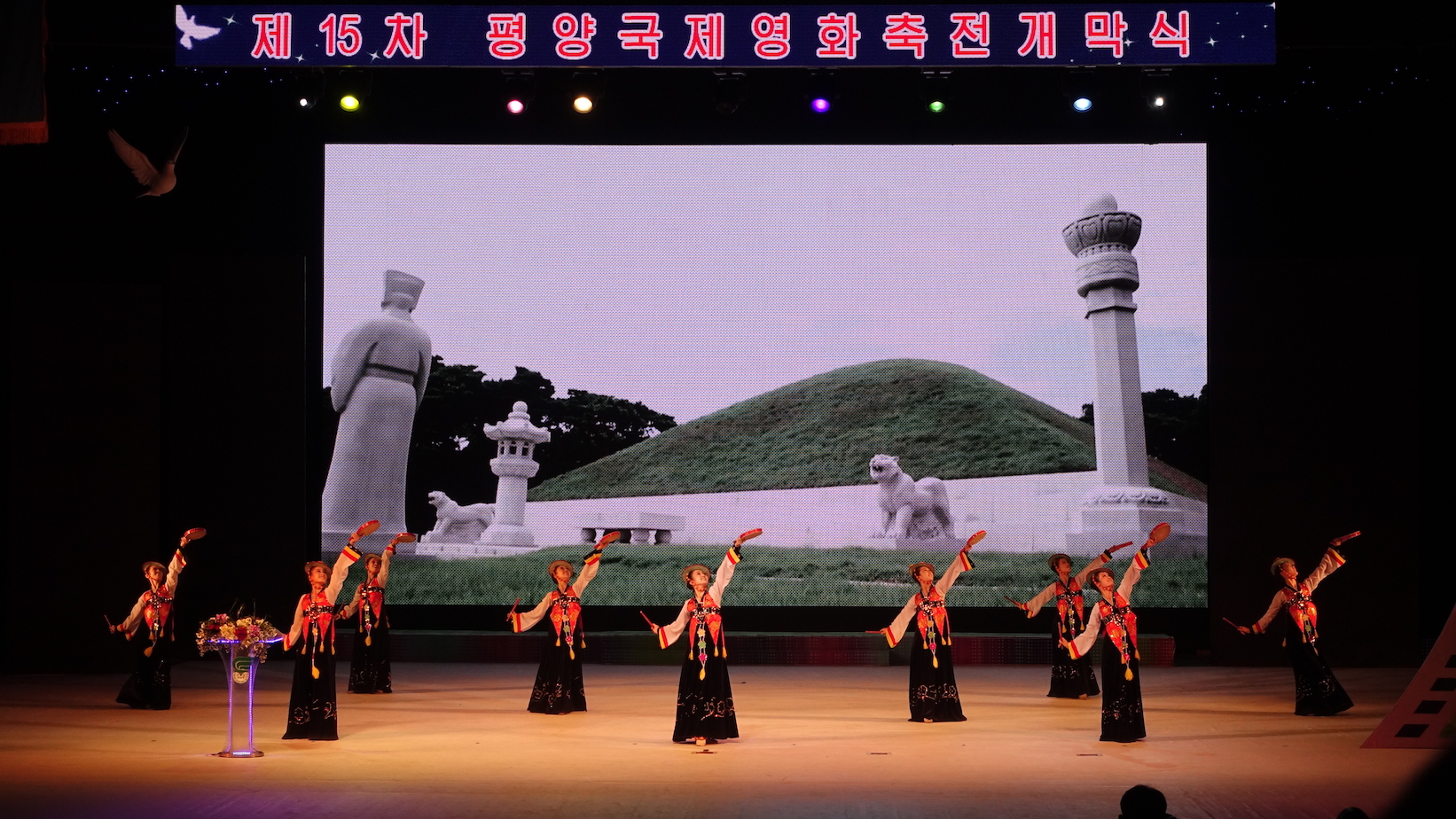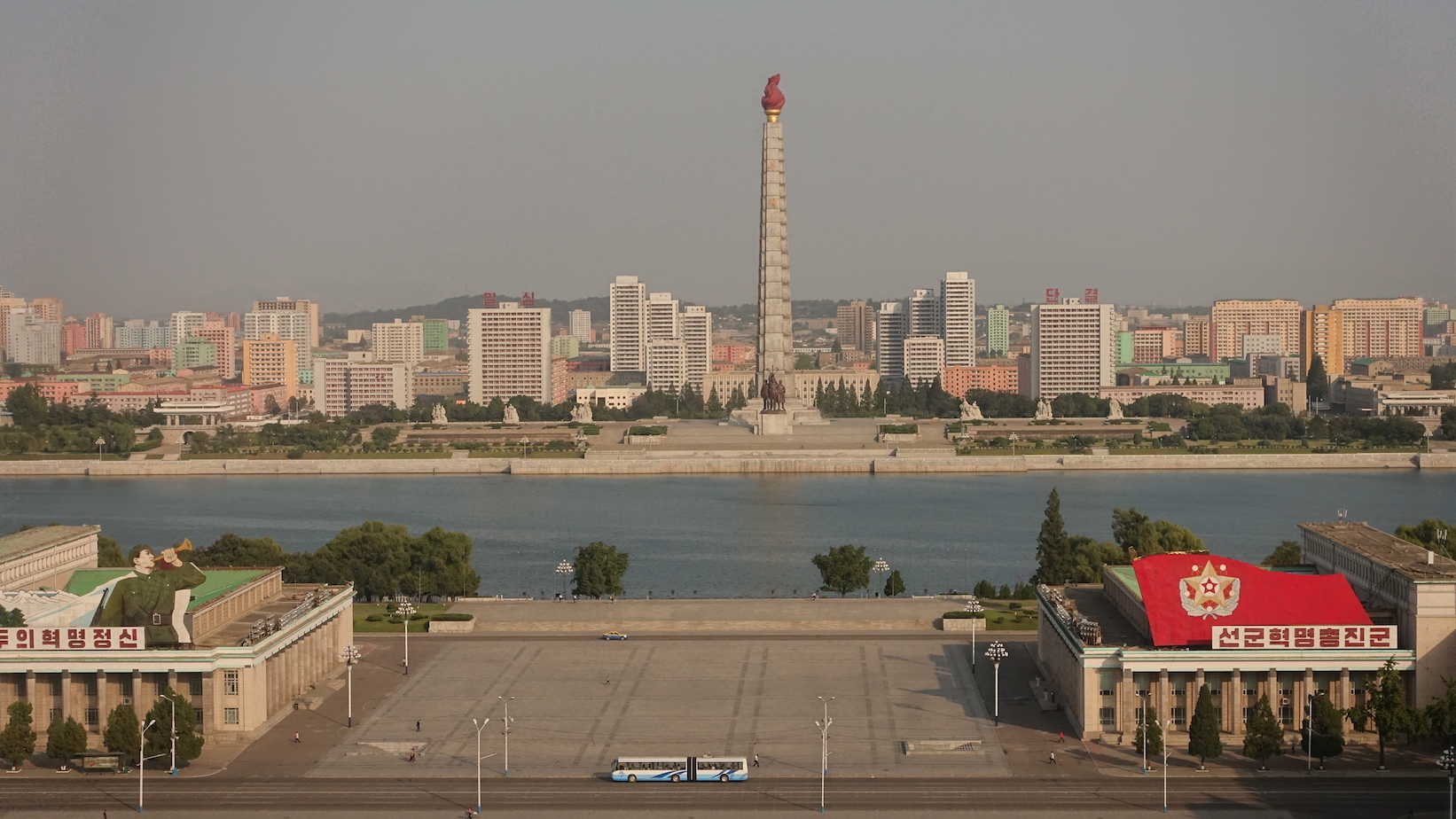
Were it set in any other place in the world, Daniel Gordon's A State of Mind still would make for an intriguing and ultimately poignant film. After all, it is at once a moving coming-of-age tale, an engaging sports documentary, and an intimate look into a different society. However, A State of Mind takes place in North Korea, which is what makes it extraordinary.
The film's opening intertitles describe its setting as the "least visited, least known, least understood" nation in the world. This statement may read like hyperbole today, after The Interview and U.N. sanctions and tumblrs dedicated to former leader Kim Jong-il looking at things. In the past decade, North Korea's reclusiveness has had the paradoxical effect of attracting a global spotlight to it. With a totalitarian regime currently in its seventh decade of uninterrupted power, North Korea remains firmly closed to organic interpersonal exchange, leaving many scholars, journalists, and political scientists to grasp for information about the country and its society by any possible means.
Some understanding can be gleaned by reading non-fiction (Barbara Demick's Nothing to Envy), pertinent fiction (Adam Johnson's The Orphan Master's Son), or commentary on the country's controversial nuclear weapons program. But these resources came years after A State of Mind, a jaw-dropping landmark upon its release in 2004. Never before had an outsider been granted such access to quotidian life in the Hermit Kingdom. The common refrain was that Pyongyang, North Korea's capital and largest city, was a Potemkin village on an unprecedented scale: a real-life version of The Truman Show where any outsider who dared venture inside became Jim Carrey. In such an environment, what A State of Mind showed us was revolutionary. Twelve years later, even though we know much more about the country itself, Gordon's film remains an enlightening watch. If anything, as a time capsule its value has only increased.
North Korea is a Communist country, set up as the Democratic People's Republic of Korea in 1948 with the aid of the erstwhile Soviet Union. Its first leader (and founding father) Kim Il-sung also came up with the country's guiding philosophy: juche, or self-reliance. All citizens are made to believe that they are the luckiest people on Earth; "We have nothing to envy," goes a popular propaganda song. From birth, they are indoctrinated with the notion that their ultimate loyalty is to the state. The country's Stalinist architecture reinforces this: Every structure and institution dwarfs the individual.
Nothing epitomized this better than the Mass Games, a largely annual spectacle where small children gathered in huge numbers for synchronized performance routines describing the secondary nature of the individual to the common good. The Guinness Book of World Records has recognized this as the largest event of its kind. A State of Mind follows two young girls as they prepare to perform in the 2003 edition of the Mass Games.
Our protagonists are thirteen-year-old Pak Hyon-sun and eleven-year-old Kim Song-yun, which is not what the filmmakers originally intended. Initially, A State of Mind was going to be about just Pak Hyon-sun, who hailed from a lower-class family (her father was a bus driver) and owed her achievement in gymnastics to diligent training. However, in the North Korean equivalent of "Hollywood studio interference," the authorities in Pyongyang proposed shooting with Kim Song-yun instead. That she was younger, more naturally gifted at gymnastics, and hailed from a richer family (her father was a university professor) might have had something to do with the suggestion. The filmmakers blanched at the drastic change and, eventually, a middle ground was reached: The narrative would weave together the lives of both girls.
This is a rare case where compromise becomes cause for cheer: A State of Mind benefits from the contrasts evoked by the two girls, their skills, and the conditions of their homes. The tension between their personalities—the older Pak is aware what a stretch (sorry) excelling in the drills is, while the younger Kim knows she's great and isn't afraid to show it—adds an element of interpersonal pathos to proceedings that almost gives the finished film a vibe of a North Korean Bring It On! (if such a thing could ever exist).
What makes A State of Mind so riveting is how much this performance matters to the girls. From the beginning, footage of previous Mass Games seems cheesy and monotonous. Apart from their grandiose scale, the routines themselves seem like they'd wear out their welcome soon enough. With that in mind, hearing the girls talk about the event—almost always wide-eyed and reverential—infuses awe into the drabness, bringing a sense of spectacle that the would-be spectacle itself perhaps does not possess.
It is particularly heartbreaking to hear repeatedly how much the girls want to perform in front of their Dear Leader. "I long for the day when I perform in front of the General," says one to the camera. They strive to be perfect in order to do justice to the performance, and their concern seems so personal. It's a poignant irony for viewers, who know the game is rigged so that the girls won't stand out no matter how good they are. The event is about conformity, not differentiation.
Their hushed admiration for the leader is an endless gut punch as well. We know that he probably will not turn up for their performance, and that he cares naught for how hard they trained. For those who've heard of the "pleasure squads" gathered for these leaders—scores of beautiful young women picked up from around the country to offer entertainment and sexual services—the innocence of these girls is a dark cloud waiting to break. In a few years, girls like Pak and Kim will get to perform in front of the Dear Leader, but not in the way they envision.
As with all things involving North Korea, one does not know what to take at face value. It might be that the kitchens in the protagonists' homes are too fully stocked, or their dinners too bountiful. But the film is remarkable for what it does reveal. The filmmakers captured one of Pyongyang's notorious power cuts; Kim is shown visibly yawning and failing to hide her boredom while her father gushes about juche. But easily the most revelatory moment in the film is when Kim's mother speaks about what it was like to live during the famine that devastated North Korea in the nineties. This was the first time in history a North Korean had spoken to an outsider on record about that period, which was not only a huge embarrassment for the government but also a topic to cover up. At the time, even relief operations from international aid agencies were hampered because the North Korean government wouldn't grant them full access.
At a breezy ninety minutes, A State of Mind doesn't have the arrogance to ask for too much of our time. But it does have the audacity to fill that time with images we've never seen, and experiences we'll probably never get to have. Out of an event engineered to suppress the individual beneath the collective, Daniel Gordon and his team excavate the humane and present it for our perusal.
Weeks after seeing the film, the one image that's stayed with me is of one protagonist viewing her performance on television afterward, engaging in that most individualistic of things: looking for herself in the crowd.


